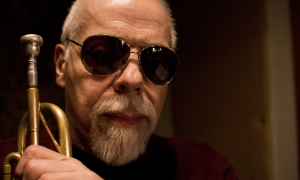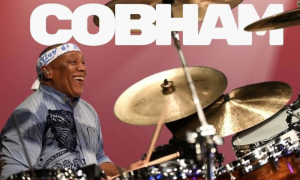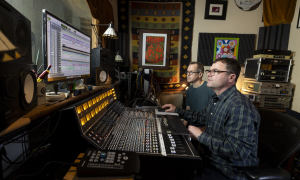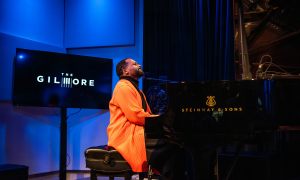As it rolls and accelerates unflinchingly without any effort on anyone's part, seizing some and being seized by others, one thing this man doesn't do is watch time burn by while sitting alongside it idly. Not David Byrne. Even before Talking Heads disharmoniously disbanded in '91, Byrne had been getting his feet wet in as many projects as he could juggle, and that relentlessly curious spirit has only garnered more momentum as time's wick keeps burning and he nears the ripe age of 57. For his latest pursuit, Big Love: Hymnal (Todo Mundo), Byrne abandons everything you thought you may have known about him and his music to introduce a soft, sweeping, toned-down soundtrack for an HBO drama about Mormonism and polygamy (while it doesn't surpass it, the choice of endeavor surely ranks up there with his “Playing the Building“ experiment this past summer in NYC). Yet, regardless of the eccentricity - a word that could somehow be an etymological cousin to the very name Byrne - of selection, the project and its conductor fit together like they were created for one another, and Hymnal is a light, pleasant piece that works surprisingly well, despite its entirely un-Byrne-like feel.
Byrne, an apparent fan of the series due to its moralistic investigations into religion and polygamy, felt compelled to immerse himself in Mormon history and their sacred music, and eventually came to write a number of hymns of his own. The actual soundtrack, which contains songs featured during the second season of the show plus some extras written for its release, is both succinct and thorough; capturing in stride some of the not so average ups-and-downs the show's Henrickson family faces on a regular basis. Spots like “Deep Water," a juicy piano and guitar riff, makes all appear peachy for the clan and their ordeals, though other areas such as the clunky clangor of “Unclean Spirits" put a more dubious spin on things, giving both sides attention and consideration.
With a folksy, almost feudal character, the soundtrack presents a melodic tableau of free-flowing string work ("A Conduit to Heaven," The Pearl of Great Price), starkly struck pianos ("The Breastplace of Righteousness), brass pieces that are usually easing ("Language Confounded"), random bits of mallet percussion and Byrne's own juxtapositional entries on six-string. Tracks are sweetly concise, with only one exceeding three minutes and most of the 21 averaging around one-and-a-half to two, but the instrumentals find a significant voice in their ordering in their sequencing. Since only the tropical cover “Blue Hawaii" has any proper lyrics, the album's predominantly Mormon-based song titles do most of the “talking" in bringing the series' faith-grappling notions to the pedestal. Combos like “A Building in the Air/Great Desolations" represent some of the darker, more discordant shades of existence, while “Cloud of Light/The Burden of the World" are more like rejoicing floaters, perhaps serving as a type of redemption, salvation, or simply peace of mind.
Released just a day after his hugely successful second collaboration with Brian Eno on Everything That Happens Will Happen Today, Byrne spent no time worrying about spacing out his most recent offspring, or maybe he was just anxious to get them both out to the public. Never a prisoner to time's hampering grasp, Byrne's mercurial tenacity for “the next great project" keeps him just as active - if not more so - as he was in '74 when he was an ambitious art student at the Rhode Island School of Design. And for that - for his continual, relentless presence - the music world remains an ever-expanding and better place.























